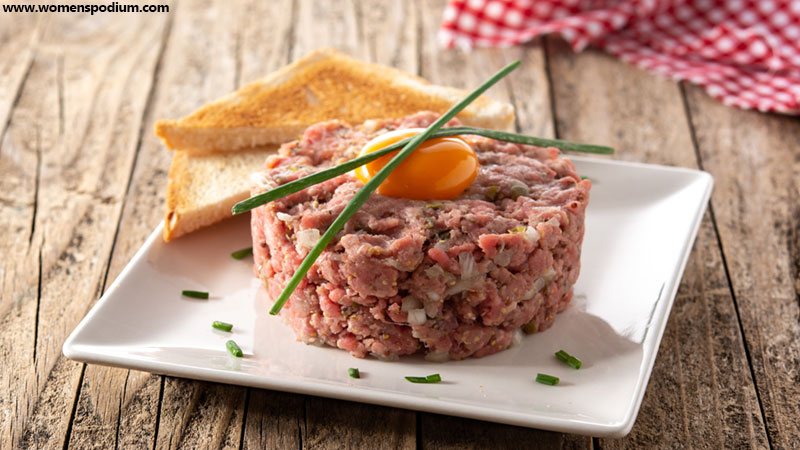
What should a woman do if she wants to get pregnant, or in other words, how to prepare for pregnancy? Well, there are plenty of do’s and don’ts of pregnancy, but what to follow or what not is an important question, and your doctor is the best person to consult. However, there are some common things that women usually follow during their pregnancy or while trying for pregnancy, and the very same we will address in this article.
A healthy pregnancy is what any woman wants while trying to get pregnant. It is also the answer to the question of how to prepare for pregnancy. Being healthy before your pregnancy can help improve your chances of getting pregnant, and it also helps prevent pregnancy complications. If you’re thinking about getting pregnant, centralize your mind to take the best care of your health. A woman must be mentally and physically prepared for conceiving, as for a healthy pregnancy, you need planning at least three months before you get pregnant. As soon as you have thought of having a baby, you should start preparing for it. This way, you will be sure that you have done all the preventive measures you can do for the healthy development of the fetus.
Preconception Health Is Important!
It is never too late to get ready for pregnancy if you are trying to conceive or just thinking about it. For some women, getting their bodies ready for pregnancy takes a few months, whereas, for others, it might take longer. You need good health care for preconception health and to increase the chances of having a healthy baby. Every woman must follow some basic protocols when planning to have a baby. Whether this is your first, second, or fourth baby, the below-shared guide will help you prepare for the healthiest pregnancy possible.
How To Prepare For Pregnancy?
1. Talk To your Doctor

It is always advisable to talk to your doctor when you are planning to get pregnant. Discuss your medical history with the doctor. If there are any medical conditions that could affect your pregnancy, your doctor can guide you in the right direction after knowing your health history. Besides these, they will check for nutritional deficiencies, thyroid function, high blood pressure, or diabetes and treat you if you have any of these conditions.
2. Vaccinations

Seeing your medical conditions, your doctor might suggest some vaccinations that are recommended before you get pregnant, during pregnancy, or right after delivery. Getting the right vaccinations at the right time can help you stay healthy.
3. Stop Taking Pills

If you are taking contraceptive pills, you must stop taking them at least three months before trying to conceive. Your body needs time to clear the extra hormones and resume a regular period without birth control.
4. Take Folic Acid Every Day

If you want to become pregnant, take 400 micrograms (mcg) of folic acid daily. Folic acid is a Vitamin B essential for a healthy pregnancy; it helps prevent some major birth defects in the baby’s brain and spine.
5. Prenatal Vitamins

Start taking prenatal vitamins at least two months before conceiving. Among other prenatal vitamins, ensure they should contain at least 400 mcg of folic acid. It also helps reduce morning sickness, which naturally happens to almost all women during the first few weeks of pregnancy. Don’t take anything on your own; always discuss it with your doctor first.
6. Weight Control

Start exercising and control your diet to slim down if you are overweight. It has been found in various studies excess weight sometimes hinders conceiving in many women. The probability is slightly higher for obese women to have more pregnancy complications than those who are slim and fit. So start eating healthy and exercising before getting pregnant.
7. Quit Smoking

Cigarette smoke is harmful to the fetus and can cause many problems during pregnancy. Hence, be sure to quit smoking well ahead of time before conceiving.
8. Avoid Alcohol

If you have the habit of sipping wine on and off during dinner, quit as soon as possible. No amount of alcohol in the body has been proven safe, so it is better to say ‘No’ to alcohol. The growing fetus is highly vulnerable to damage during the first trimester and throughout the entire pregnancy period.
9. Medications

A pregnant woman must think twice or thrice about her ongoing medications before and during pregnancy. There are many drugs which can cause serious health issues to the fetus. Avoid taking any medications without consulting your primary healthcare provider. Talk to your doctor before taking or stopping any medicines. Also, check out the risk factors from the chemicals you might be using for work at home.
What Are The Pregnancy Do’s And Don’ts
Above, we discussed how to prepare for pregnancy; now, let’s move to the dos and don’ts of pregnancy. After all these efforts, when you are pregnant, you must take care of yourself more than when you were trying to get pregnant because now you are not alone; you are carrying your child inside you. There are some pregnancy dos and don’ts as well; let’s read and follow the given factors that you should consider during pregnancy.
Pregnancy Do’s
1. Healthy Diet

First, go for a healthy and balanced diet, and include lots and lots of fruits and vegetables in your diet. A pregnant woman should take at least five servings of fresh fruits and veggies daily. Also, add whole grains to your diet, like breakfast cereals and bread, etc. Also do take plenty of calcium-rich food such as plain yogurt, low-fat milk, broccoli, spinach, and almonds; they are all excellent sources of calcium. Your growing baby needs calcium for the development of stronger bones and teeth. Avoid eating fatty foods like butter, margarine, and fatty meats.
2. Do Get Enough Sleep

Pregnancy is demanding, and getting good sleep is very important during pregnancy. Changing hormone levels, tension, and anxiety can make your sleep evasive during the nine months of pregnancy. Pregnant women get pains, aches, and mood swings, which keeps them away from the bed. Do some simple exercise like walking or swimming and try not to sleep during the daytime. Eat dinner at least 3 hours before going to bed. Take a quick nap whenever you feel tired; if you can schedule catnaps then do it whenever possible. Set a bedtime routine and stick to it; try to sleep for at least 7-9 hours.
3. Practice Yoga

Yoga works excellently when you are pregnant. It also helps in the physical and mental development of the fetus. Most pregnant women who do yoga tend to have a smooth pregnancy and higher chances of giving natural birth. If you are willing to join yoga classes; talk to your doctor about the risks and concerns first before signing up for any classes. Opt for prenatal or gentle yoga classes specially created and designed for mothers-to-be. Never do anything on your own while you are pregnant. Instead, ask your instructors because they are specialized people and know which poses are correct and appropriate and which you should avoid.
4. Do Work Out

Is it safe to exercise during pregnancy? Well, for most pregnant women, workouts are safe and healthy because exercise is good for both mommy and baby. A regular exercise routine may help you deal with many issues that occur during pregnancy, such as muscle pain, excess weight gain, insomnia, and mood swings. Exercise can reduce backaches, prevent weight gain, relieve constipation, bloating, and swelling, boost your mood, elevate your energy levels, help you to get better sleep, and tone your muscle strength. Other potential benefits of a regular exercise program during pregnancy may include a lower risk of gestational diabetes, reduced risk of having a C-section, and shortened labor. If you are new to exercise, talk to your doctor about helping you out with the kind of exercise you should go for.
5. Keep An Eye On Your Weight

Keep a strict watch on your weight. Overweight and underweight are not advised during pregnancy. On average, the healthy weight gain after 40 weeks of pregnancy is 25 to 30 pounds. Exceeding the recommended limit may result in obesity. Gaining excess weight during pregnancy will do more harm to your baby than good. You only need about 100 extra calories a day during your first trimester to support your growing fetus.
6. De-Stress

Take a deep breath whenever you feel stressed. Meditation and listening to soft and soothing music is a better way to get rid of stress. A few studies suggest that most pregnant women who are stressed during the first three weeks after conception are more likely to miscarry.
7. Vitamins And Minerals

Women need lots of vitamins and minerals, especially iron, when pregnant. They need extra supplements besides eating the iron-rich food in the diet. Your doctor will suggest the right amount and sources, and she might advise you to take some prenatal multivitamins.
8. Folic Acid

You can take folic acid before and during pregnancy. It helps to prevent significant congenital disabilities in the baby. All women should take at least 400 micrograms of folic acid every day or as prescribed by the doctor. You can also include a folic acid-rich diet. Folate is a B vitamin found in many foods, the manufactured form of folate is called folic acid, also known as folacin and vitamin B9. Folic acid is essential because it can help prevent major birth defects in the baby’s brain and spine. Folic acid helps form the neural tube when the baby develops early during pregnancy. The natural sources of folic acid are peanuts, green leafy vegetables such as spinach, turnip greens and all citrus fruits and juices. Also, drink an adequate amount of water and fluids.
9. Prenatal Classes

Going for prenatal classes is not necessary, but it is good if you opt for it. It is advisable for both husband and wife should join the prenatal classes. Prenatal classes help develop understanding levels between spouses. Besides being supportive of each other, these classes mentally prepare both of you for labor and childbirth.
Pregnancy Don’ts
1. Caffeine

An excessive amount of caffeine in your diet can cause problems during pregnancy. It can disturb your sleep, so avoid it as far as possible. Some researchers found that caffeine is considered to cause blood vessels in the uterus and placenta to constrict, which could reduce the blood supply to the fetus and impede the growth of the fetus.
2. Avoid Raw Meat And Eggs

Avoid eating raw and undercooked meat and eggs because they carry the threat of foodborne illnesses, such as food poisoning, listeriosis, and toxoplasmosis. These could be life-threatening, leading to severe congenital disabilities and even miscarriage. Make sure all meats and eggs that you eat while pregnant are well-cooked.
3. Avoid Unpasteurized Milk Products

Calcium is essential for fetus growth, but moms must be careful how they get their calcium intake from dairy. Drinking raw milk contains the bacteria Listeria, which can make pregnant women sick and, in the worst case, lead to miscarriage. Never consume raw milk since it is unpasteurized, which means the milk hasn’t been boiled or heated to kill the bacteria.
4. Stay Away From Fragrance And Chemicals

When pregnant, you should sidestep cleaning solutions that contain toxic chemicals. Besides chemical substances, you must avoid fragrances like perfumes and other similar products since they can cause irritation and may affect your body with some infections.
5. Quit Smoking

Smoking during pregnancy is hazardous. Smoke contains nicotine that reaches the fetus and can have serious implications. It raises the risk of premature labor, miscarriages, placental abruption, birth defects, low birth weight, etc. It also gives rise to the chances of having an ectopic pregnancy. Passive smoking should also be avoided; it affects the baby’s health. Quitting is hard, but you have to do it for your baby. One should try quitting smoking at least 8-10 months before pregnancy. Take advice and help from your doctor.
7. Don’t Drink Alcohol

Alcohol may significantly affect your baby’s growth—women who consume alcohol while pregnant could deliver a baby with fetal alcohol syndromes such as low birth weight, behavior problems, and learning disabilities. Even a small amount of alcohol is not safe; no exact data or research shows the precise amount of alcohol intake that is safe for the baby and the mother during pregnancy. It is advisable to be away from drinking any amount until delivery.
8. Don’t Do Heavy Exercise

Exercise is important during pregnancy, but heavy exercise like weight lifting should be avoided. Walking is one of the best exercises pregnant women can go for.
9. Avoid Hot Water Bath

Do not use the sauna, hot tub, or tanning. Taking a bath in hot temperatures can potentially harm the developing fetus. The temperature of the water should not be more than 100 degrees Fahrenheit. Whereas taking a warm water bath is really very soothing for pregnant women. Even doctors recommend using a warm bath because it soothes muscular pain.
Pregnancy is the time when you need to be extra cautious. Taking care of yourself becomes your first priority because now you are not single; you have your little bundle of joy inside you. And you are responsible for helping them grow in a nurturing, healthy environment. I hope our guide to how to prepare for pregnancy and the list of pregnancy do’s and don’ts can relieve what you should worry about and what you shouldn’t agonies over.
Also Read: During pregnancy, everyone around you gives you bits of advice, but for your own safety, ensure not blindly follow any irrelevant suggestions or myths related to pregnancy.
Disclaimer: Above shared tips are general advice every pregnant woman should take during her pregnancy. But as we know, every woman’s pregnancy is her own journey; therefore, we suggest always consulting your doctor before following any recommendation.





